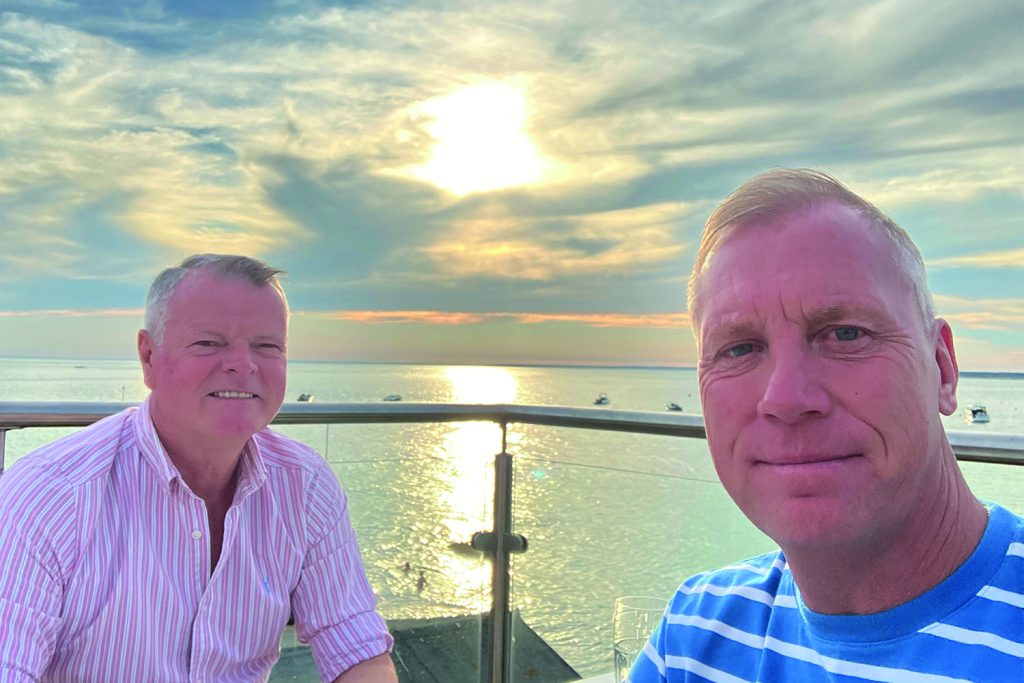See ‘Pride in place’
Q Your accent is strongly northern – how did you end up on the Isle of Wight?
A For work. I’m originally from Elland, a little town in the Yorkshire Pennines. My partner, David, and I moved to the Isle of Wight in 1992, after I finished studying [youth and community] at Ilkley College.
Q That must have been quite a change of scene?
A Yes; we were used to a more inclusive way of life, northern clubs etc. Our first LGBT+ disco on the Island was held in a secret location that had three flashing lights and a glitter ball! But we made a lot of new friends and lived a fascinating life, moving through the secret revolving doors of different LGBT+ Island groups.
Q What was the job?
A I became the first detached youth worker for the Island, with a sexual health focus, later becoming the first outreach gay men’s worker to be appointed anywhere on the south coast.
My LGBT+ work was largely conducted quietly, underground, because of the fear of discrimination, and my education work was complicated by Section 28. I also supported and cared for people living with HIV when others were reluctant, or fearful, to do so. I even had to drive a very ill person, in their car, to the Beacon HIV hospice at Bournemouth, because of resistance to using an NHS ambulance.
I’m not quite sure how I ended up doing all that work, and never imagined I could become a county councillor on our Island because of the oppression and my sexuality, let alone be married.
Q Have things changed since the 1990s?
A At that time, many LGBT+ people on the Island were afraid of coming out for fear of losing their jobs. The police also targeted people for cottaging, leaving them with criminal records.
I did help change some things and attitudes, and our Island police were the very first in the South East to introduce lesbian and gay liaison officers.
On a more positive and fantastic note, my LGBT+ job came to an end because of life-changing HIV treatment and changing attitudes, albeit it very slowly.
Our Island has come a long way, with Pride events taking place, but sadly I do suffer occasional phobic attitudes. In response, I prefer to try to educate where possible, unless I am directly threatened.
Q Why did you become a councillor?
A I’ve always been a community worker. After recovering from late-stage cancer, I wanted to put something back and use my skill set to influence change – by becoming a justice of the peace or a councillor.
I was quite interested in politics, but not deeply. I wanted to make a difference, not just for the LGBTQ+ community, but for all the people of the Isle of Wight, and I thought I had something to bring to the table.
Q What do you want to achieve?
A I don’t want to be known for my sexuality, but for what I can contribute, although the two things are very linked.
My values of equality and inclusion are fundamental to what I do. I can’t be a part of a political group because I’m too much of a free spirit – and I put the people first, as I see it, not party politics, which inhibit and stifle expression and transparency.
I’m a character with lots to say. I don’t see any point in being elected to sit quietly in a corner, even if others don’t agree with me – I guess that’s the educator in me!
We can never right the wrongs from our past, but we can learn from them and change. As Nelson Mandela said: “Education is the most powerful weapon you can use to change the world.”


